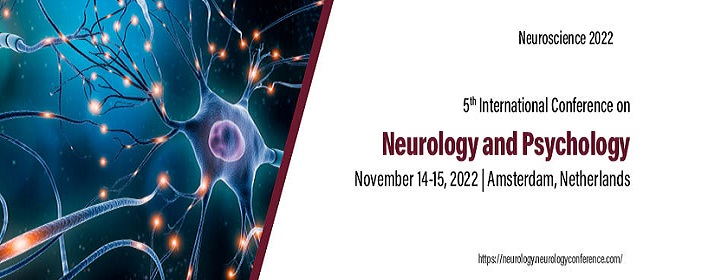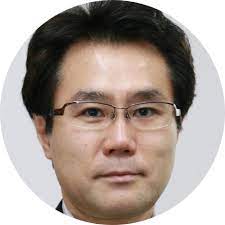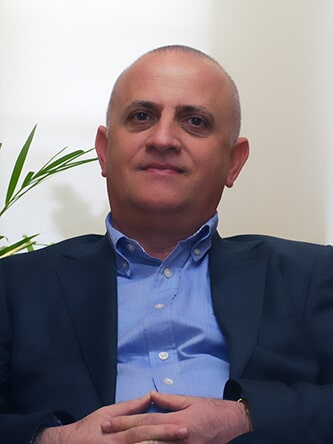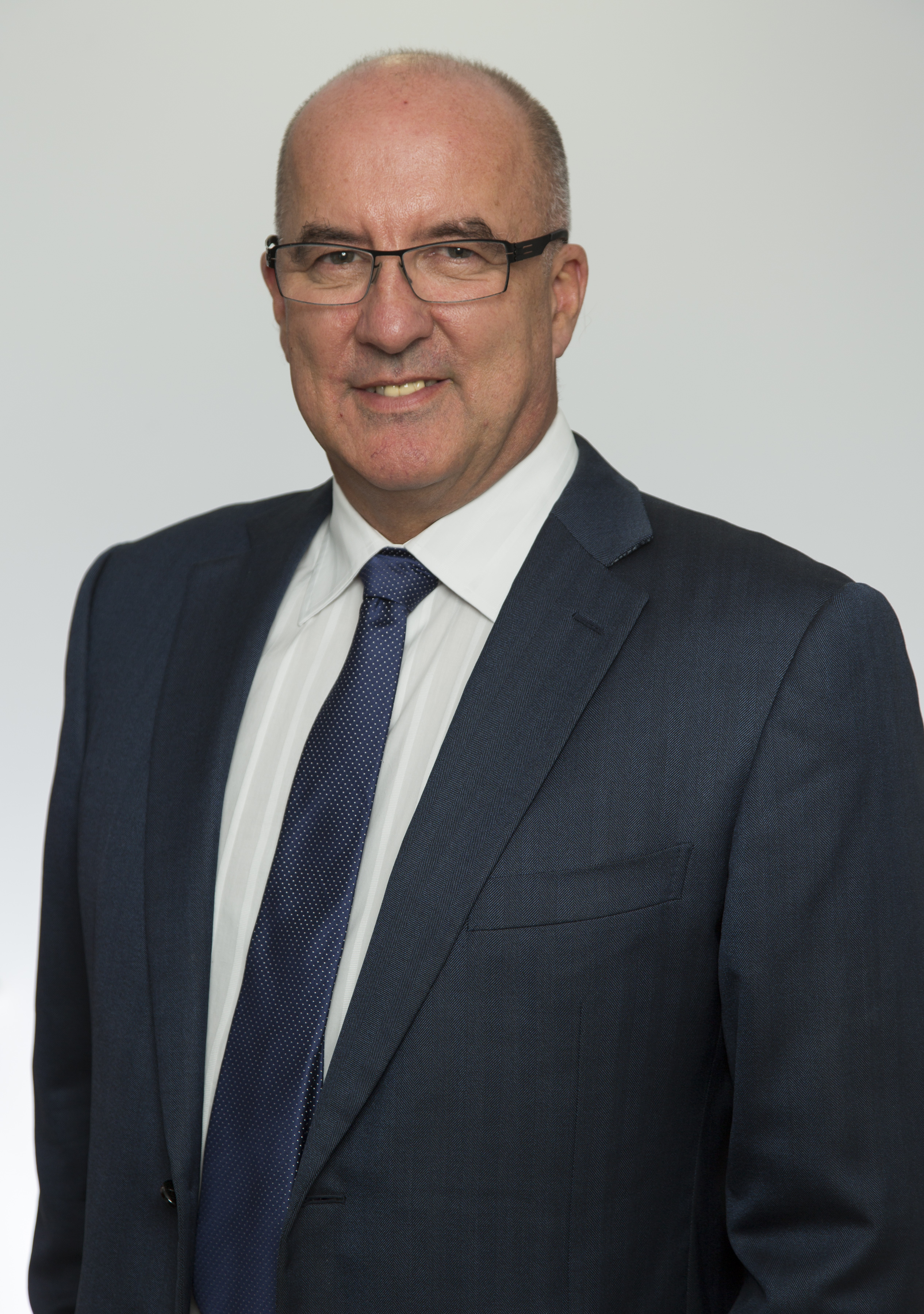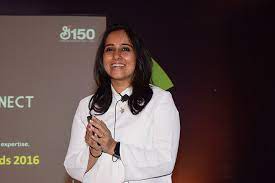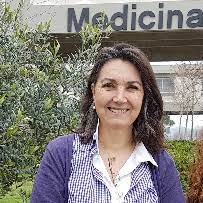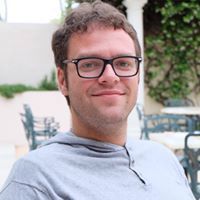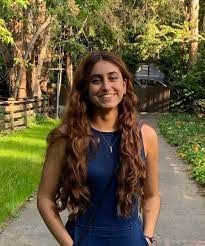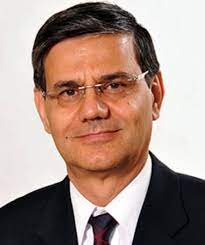Theme:
Neuroscience 2022
ABOUT CONFERENCE
The "5th International Conference on Neurology and Psychology" is open to speakers and attendees from all over the world and will be held in Amsterdam, the Netherlands, on November 14–15, 2022, with the theme Insights of Neurology and Neuroscience related fields.
The optimum conditions for great science, a welcoming environment, and easy focus on the academic interchange of ideas and authoritative viewpoints that encompass the entire spectrum of research in neurology and psychology are provided by Neuroscience 2022. The goal of Neuroscience 2020 is to bring together neurologists, psychologists, professors, researchers, students, and everyone else who is interested in learning more about how the brain works and psychology from all over the world. This conference offers a great platform for sharing ideas and expertise.
About Organization
The world's leading expert in organising academic, scientific, and business conferences, meetings, symposia, and exhibitions in various vertical and horizontal sectors, including medical, pharmacy, engineering, science, technology, and business to advance scientific research is Conference Series LLC Ltd. With the kind assistance and collaboration of our 30,000 editorial board members and more than 1,000 scientific societies, we annually host over 3,000 international events, including more than 1,000 conferences, symposia, and workshops throughout the United States, Europe, the Middle East, and Asia. The DOI generated by CROSSREF is included in special issues of our 700+ international open access journals that publish all conference proceedings.
Benefits
- The sponsoring journals for the conference and the conference book proceedings will both publish all approved abstracts.
- Each abstract will be given a Cross Ref DOI number. Possibility to hold a workshop with your team members.
- One-on-one meetings with keynote speakers, OCM, and prominent figures to plan the future course of work.
- the chance to lead a session.
- The organising committee's certification.
- Specific keynote A page will be made to increase the exposure of your scientific study.
- Massive Discounts for Group Registration, among other things.
Target audience
- Directors of the Associations for Neurology and Psychology.
- Researchers/Scientists in Psychiatry.
- psychologists and neurologists.
- Junior/senior research fellows in the fields of psychology, nursing, and health care student.
- Directors of pharmaceutical firms.
Track 01: Neurology
The field of neurology focuses on nerve system diseases. The three primary subfields of neurology are the autonomic, central, and peripheral nervous systems. Infants, young children, and adults often have different neurological problems. A few conditions that impact children include learning difficulties, epilepsy, complex metabolic diseases, cerebral palsy, and nerve and muscle ailments. An expert in neurology is referred to as a "neurologist." The problems of the nervous system are diagnosed and treated by neurologists. A neurologist can treat a variety of neurological illnesses, including stroke, seizures, Parkinson's disease-related movement disorders, autoimmune neurologic disorders including sclerosis, and headache disorders like migraine.
Track 02: Neurological disorder.
The brain, spinal cord, cavernous nerves, peripheral nerves, nerve roots, autonomic nervous system, muscles, and neuromuscular junction are all parts of the nervous system that are affected by neurological illnesses. The neurological system can be infected by a wide variety of bacteria, viruses, fungi, and parasites. Congenital anomalies or illnesses, genetic disorders, lifestyle choices, infections, and other factors are some of the specific causes of neurological issues. According to the U.S. National Library of Medicine, there are more than 600 neurologic illnesses. A wide range of conditions, such as neuromuscular problems, epilepsy, brain tumours, and autism, are classified as neurological disabilities.
Track 03: Psycological disorders.
A persistent pattern of thoughts, emotions, and actions that is dysfunctional and causes great discomfort is referred to as a psychological disorder. A psychological evaluation may be helpful and a psychological disorder may be diagnosed when a person exhibits mood, cognitive, or behavioural disorders for an extended period of time. psychotherapy is a common component of treatment to address behaviours, skill development, and thinking processes. A person may be admitted to the hospital due to concurrent illnesses, severe
Complications, severe disorders,or drug addiction. Certain psychological disorders can benefit greatly from medication.
Track 4: Neurocritical care
Patients with a variety of neurological disorders, such as stroke, subarachnoid haemorrhage, brain trauma, coma, intracerebral haemorrhage, seizures, spinal cord trauma, status epilepticus, encephalitis, myasthenia gravis, And neuromuscular disease can receive critical care from specialists in the field of neurocritical care.
Track 05: Neurogenetics.
The field of neurogenetics investigates how genetics affect the growth and operation of the nervous system. Advances in molecular biology and genetics as well as a desire to comprehend the relationship between genes, behaviour, the brain, and neurological disorders and diseases have given rise to it.
Track 06: Neurobiology.
The scientific study of the nerve system is known as neuroscience. To study the fundamental and newly discovered characteristics of neurons, glia, and neural circuits, it is a multidisciplinary discipline that incorporates physiology, anatomy, molecular biology, developmental biology, cytology, computer science, and mathematical modelling. Neurobiology seeks to comprehend these behaviours and their relationships to other sections of the brain by examining how each region of the brain influences a distinct aspect of behaviour. The frontal lobe is known to have a part in personality, emotions, judgement, problem-solving, abstract thought, attention, and planning, according to neuroscientific studies.
Track 07: Neurosurgery
The medical field of neurosurgery focuses on the prevention, diagnosis, surgical treatment, and rehabilitation of problems affecting any component of the nervous system, including the brain, spinal cord, central nervous system, peripheral nervous system, and cerebrovascular system. Both adult and paediatric patients can receive therapy in the neurosurgical profession.
Track 08: Psychology.
The study of the mind and behaviour is known as psychology. Psychologists workhard to investigate and comprehend how the mind, brain, and behaviour work. A psychologist treats a patient through psychotherapy, helping to relieve symptoms through behavioral change. The role of the psychiatrist, who is a medical doctor, focuses more on prescribing medication and other interventions to manage mental health conditions.
Track 09: Clinical psychology
Clinical psychology combines science, theory, and practise to comprehend, anticipate, and treat issues with adjustment, handicap, and discomfort. It encourages adaptation, adjustment, and personal growth. The focus of a clinical psychologist is on the cognitive, emotional, biological, psychological, social, and behavioural facets of human performance across the course of a person's life, in contexts of various cultures and socioeconomic levels. Clinical psychology can aid in the understanding, prevention, and relief of psychologically induced distress or dysfunction as well as the promotion of an individual's health and personal growth. Clinical psychologists are frequently involved in research, training, forensic testimony, and other areas, but psychological assessment and treatment remain at the core of their work.
Track 10: Cognitive psychology
Investigating internal mental processes including memory, learning, problem-solving, and language is the focus of cognitive psychology. It examines how humans see the world, communicate, learn, and remember. It has connections to linguistics, philosophy, and neuroscience. Cognitive psychologists study people's information gathering, processing, and storing processes. Practical uses include ways to enhance memory, raise decision-making precision, or set up educational initiatives to promote learning.
Track 11: Forensic psychology
Applying psychology to legal proceedings and criminal investigations is known as forensic psychology. A forensic psychologist works in the criminal justice system and civil courts using psychology as a scientific discipline. It entails evaluating the psychological elements that could have an impact on a situation or conduct and presenting the results in court.
Track 12: Health psychology
Medical psychology or behavioural medicine are other names for health psychology .It looks at how social context, biology, and behaviour interact to affect health and illness .A health psychologist will concentrate on the whole person and what influences their health condition as opposed to a doctor, who frequently focuses first at the biological origins of an illness. This may include things like their socioeconomic position, education, and background as well as actions that might affect the sickness, such following directions and taking medication .In clinical settings, health psychologists frequently collaborate with other medical specialists.
Track 13: Social psychology
Science-based approaches are used in social psychology to analyse how social factors affect people's behaviour. It aims to clarify how the actual, fictitious, or suggested presence of other people affects our emotions, actions, and ideas. A social psychologist examines leadership, hostility, discrimination, nonverbal conduct, group behaviour, and social perception. Understanding social behaviour is said to depend on social observation and interaction.
Track 14:Mental Disorder
Science-based approaches are used in social psychology to analyse how social factors affect people's behaviour. It aims to clarify how the actual, fictitious, or suggested presence of other people affects our emotions, actions, and ideas. A social psychologist examines leadership, hostility, discrimination, nonverbal conduct, group behaviour, and social perception. Understanding social behaviour is said to depend on social observation and interaction.
Track 15: Personality Psychology
This involves examining personality differences between people. To understand what makes a person distinctive, personality psychologists draw on research and hypotheses on personality characteristics, evolution, biology, humanism, behaviour, and social learning. It is crucial to comprehend how personality evolves, as well as how it varies from person to person. A person's quality of life is adversely affected by personality disorders, which personality psychologists evaluate, diagnose, and treat.
Despite the COVID-19 dilemma, it is anticipated that the worldwide neuroscience market, which was forecast to be worth US$30.3 billion in 2020, will grow to US$37 billion by 2027 at a CAGR of 2.9%. One of the segments examined in the report, whole brain imaging, is anticipated to grow at a CAGR of 2.6 percent and reach $ 7.9 billion by the conclusion of the analysis period. In 2020, it is predicted that the US neuroscience market would be worth $ 8.9 billion.
To share your views and research, please click here to register for the Conference.
To Collaborate Scientific Professionals around the World
| Conference Date | November 14-15, 2022 | ||
| Sponsors & Exhibitors |
|
||
| Speaker Opportunity Closed | Day 1 | ||
| Poster Opportunity Closed | Click Here to View | ||
Useful Links
Special Issues
All accepted abstracts will be published in respective Our International Journals.
- Journal of Clinical Neurology and Neurosurgery
- Journal of Neurology and Neurorehabilitation Research
- Integrative Neuroscience Research
Abstracts will be provided with Digital Object Identifier by

